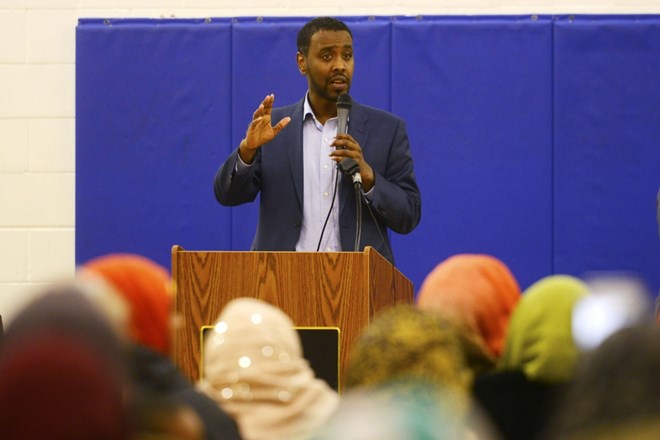
Friday January 20, 2017

Politician and Ward 6 Minneapolis City Councilmember Abdi Warsame.
After a contentious election year with issues of race coming to the forefront, the Minneapolis Department of Civil Rights is receiving more funding to investigate hate crimes and acts of discrimination.
Ward 6 Council Member Abdi Warsame, who represents the Cedar-Riverside neighborhood, said the funding was a reaction to concerns from his constituents.
People are worried about distrust toward Muslims in the U.S. now more than ever, he said.
“[There’s] a general anxiety in the city with [hateful] language and rhetoric,” Warsame said.
Warsame said the amendment was created for the civil rights department to research hate crimes, hate speech and acts of discrimination in the city.
“We have to empower the civil rights department … but it’s already overstretched,” he said.
The amendment will allow the city’s civil rights department to hire one full-time attorney to oversee issues of discrimination and identify any patterns.
Warsame said constituents also voiced concerns over deportation and if potential changes to immigration laws would affect family members coming to visit.
Warsame and Ward 8 Council Member Elizabeth Glidden added $100,000 to the 2017 Mayor’s budget to increase resources for the civil rights department.
Warsame said this amendment was an extension of an anti-discrimination resolution he authored in December, following president-elect Donald Trump’s victory.
The Public Accommodation Anti-Discrimination Enforcement resolution requested more funding and resources to be allocated to the civil rights department.
Velma Korbel, director of the civil rights department, said the department is just beginning the process of investigating hate crimes and hate speech in Minneapolis. The new, full-time attorney has not yet been hired.
University of Minnesota law professor Heidi Kitrosser said while hate crimes can be easily classified, hate speech is more difficult to investigate.
Only when speech falls into special categories like “threats of violence” or “fighting words” can it be investigated and found unlawful, Kitrosser, who specializes in First Amendment Law, said.
Otherwise, speech, even if it is hateful, is protected by the First Amendment, she said.
In recent months, there have been multiple occurrences of alleged hate speech and hate crime near and on campus.
In July, Anthony Sawina was charged in Hennepin County District Court with five counts of second-degree assault in connection with the alleged, non-fatal shooting of two Somali men in Dinkytown.
Prior to the altercation, a member of Sawina’s group made derogatory statements toward the Somali men. The Minneapolis Police Department said the incident would be investigated as a possible hate crime.
Last semester, the Muslim Student Association’s panel on the Washington Avenue Bridge was vandalized with the word “ISIS” spray-painted on it.
Campus-wide debates also sparked over the College Republican’s panel, which read “Build the Wall.” The mural ignited an outcry from the University community, adding to an ongoing conversation surrounding free speech on campus.
In the end, it’s about anti-discrimination, Warsame said, adding that it’s necessary to teach acceptance to both the broader community as well as the immigrant community.
Warsame said he will continue to hold meetings with residents on how to deal with and combat discrimination.